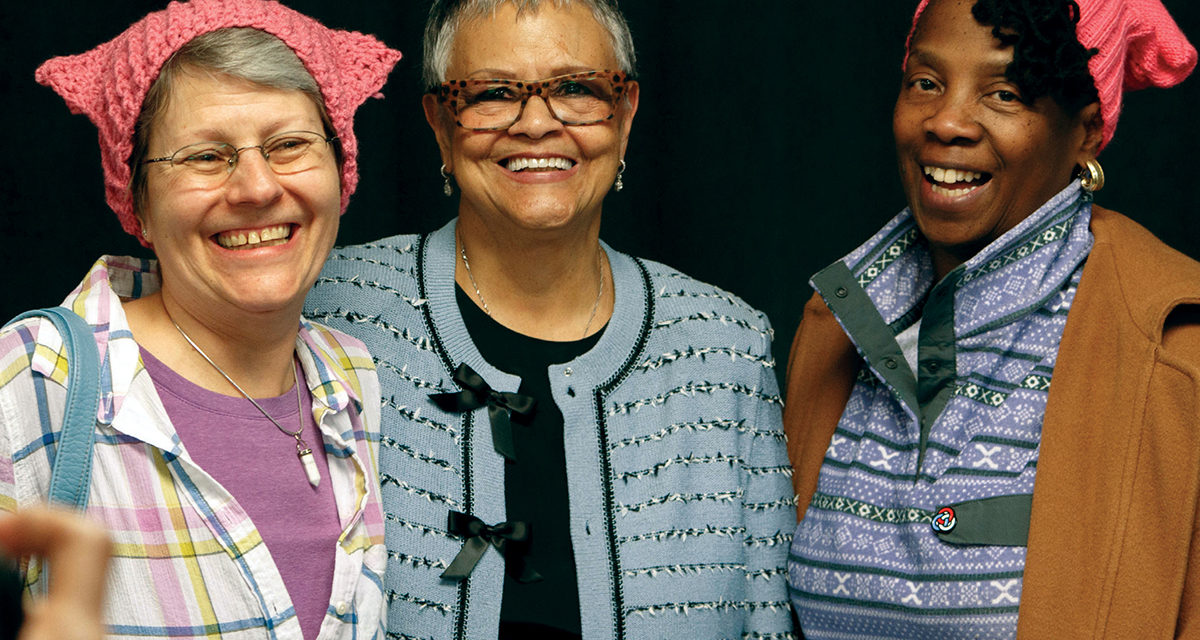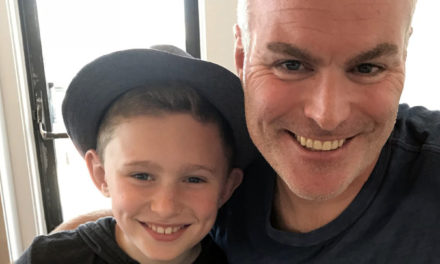First elected to the House of Representatives in 2014 and re-elected last fall, U.S. Rep. Bonnie Watson Coleman shattered racial and gender barriers by becoming the first African-American woman to represent New Jersey in Congress. And she’s making her mark, working doggedly to gain rights for women, minorities, and disadvantaged people. In an exclusive interview with Real Woman, Watson Coleman shares why she decided to take on politics in a divided country and why she wants you to do it, too.
Real Woman: You were very close to your father, state legislator John S. Watson, so you saw politics up close. Did you have reservations initially about going into politics?
Rep. Bonnie Watson Coleman: My introduction to politics had to do with being a part of my father’s campaign. My observation of politics at that time was that I’d never do it. I didn’t think I had the personality for it. My father always wanted one of us to follow in his footsteps, and my brothers and I would tell him, “No, you don’t have any privacy—it’s a real intrusion in your life.” People were calling the house at 12 and 1 o’clock in the morning because they had problems and they wanted to reach my dad. And I’d be the one who was answering the phone. From that perspective, I didn’t see that as a route for me in my life.
I also saw how much criticism he took. I knew him intimately and how motivated he was to do the things he did, so when he was criticized by the news media, I’d get angry. I’d say, “How dare you criticize my dad!” So, I never had any desire to be an elected official until my dad passed away, and then I realized I could honor the work he did so well on behalf of others. And coincidentally, the seat became available to pursue. And I did.
RW: You were the first African-American woman to represent New Jersey in Congress. How do you see your role at this point, especially in a political environment that’s so fractured and polarized?
Watson Coleman: I’m looking at the landscape as it’s related to women in elected office, and thinking about the kind of work I do now to encourage both women and minorities to get engaged in politics and run for office, and that is work that’s not completed. There’s a responsibility to ensure we’re at the table and that we will raise the issues and represent the perspectives of those who otherwise wouldn’t have a voice. So as long as I can be here, or should be here, I am going to be an encouragement to those who are underrepresented at all levels of government in elected office, as well as appointed office, to get engaged and to have their voices heard.
It is so vitally important that brilliant, intelligent women, young people, and minorities get engaged and offer themselves up for elected office. I want to encourage those who are motivated to be helpful to get engaged in this process and become elected officials.
RW: What do you think keeps more women from running for office?
Watson Coleman: To begin with, I don’t think women are particularly encouraged by male-dominated apparatuses. I also think many women have been socialized and traditionalized into different roles. For example, a young mother is often less inclined than a young father to become an elected officeholder because she feels primary responsibility for taking care of her children. From a very young age, we are not encouraging women the way that we should. But the bottom line is, we represent more than 50 percent of the population, and until we get close to that number among elected officials, we’ve not succeeded.
RW: How do we support and encourage women so they feel empowered to come out and run for office?
Watson Coleman: It’s our responsibility as elected officials to speak to women’s groups and sororities and other advocacy groups for women to encourage them to make their mark and participate on any level that they’re ready, willing, and able to. We need to tell them that their fears, their concerns, and their considerations related to whether or not they are ready or knowledgeable enough about the process are normal and understandable. In fact, we have all experienced those self-doubts and questions on one level or another. But don’t let that keep you back, because there are support systems all over now, on so many different levels of government, which are going to be there and have your back.
RW: So, if a woman is engaged, intelligent, and persevering but maybe didn’t have a background in government or civics or politics, you’re saying that shouldn’t stop her?
Watson Coleman: Exactly. There are men who come here as doctors, and who come here as teachers or come here as farmers or come here as sheriffs. So, obviously, having a background just in public service and being engaged in public policy aren’t the criteria. The criteria, I believe, are to be intelligent, willing to work on behalf of others, and understand the importance and significance of government and its appropriate roles in preserving and protecting civil and human rights and opportunities for all.
RW: Were you encouraged by the women’s marches around the world and everything that’s happened since?
Watson Coleman: Absolutely. I’m encouraged by the continuation of the resistance movements and the standing up for others that are taking place around this country and in New Jersey right now. And my only caution is that this is a sprint, but it’s also a marathon. So, I need all the good people to come together, to stay together, to stay awake and stay alert and be ready to mobilize because this is not a quick fix. And we who can must stand up for those who can’t.
Snapshot

In 2016, Watson Coleman was a founder of the Congressional Caucus on Black Women and Girls, the first House caucus to study policy issues related to the success and accomplishments of that population. Watson Coleman is an active member of the Congressional Black Caucus, the Congressional Progressive Caucus, the Congressional Caucus for Women’s Issues, and the Congressional LGBT Equality Caucus. Watson Coleman has championed legislation to protect vulnerable Americans and communities, including gun safety, environmental protection, and a package of bills to tackle long-term unemployment. Rep. Watson Coleman is also the author of the Healthy MOM Act to allow women to enroll in or change their health coverage if they become pregnant, and the End For-Profit Prisons Act to prohibit the federal government from contracting with for-profit prison corporations.






